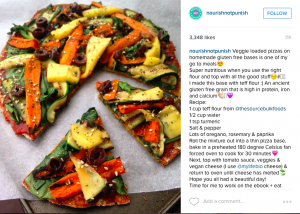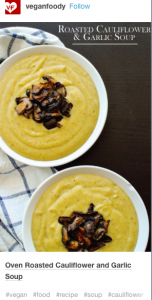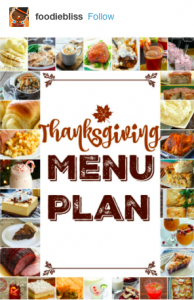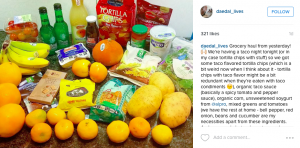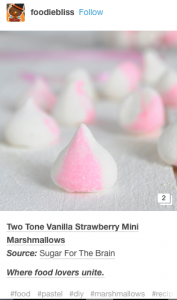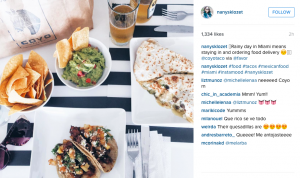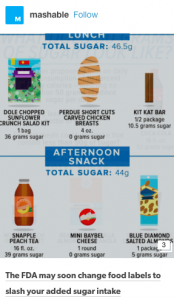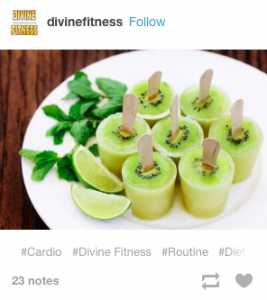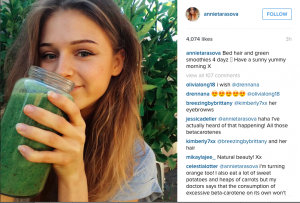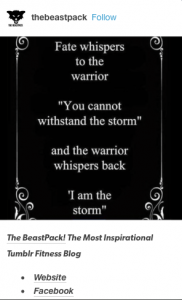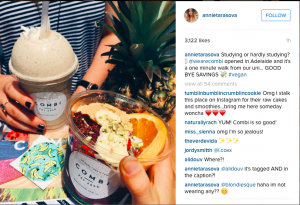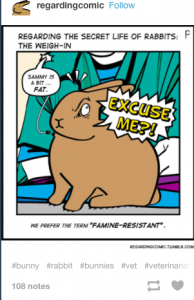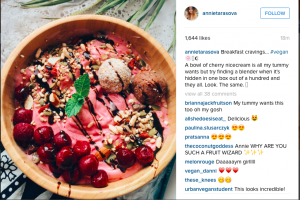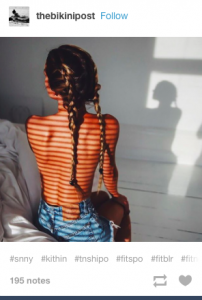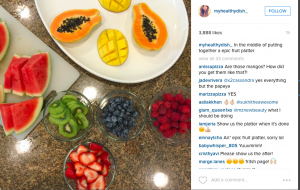Hello!
As yesterday I discussed how geography determines what you eat, the themes continue along that as well in today’s post. Today particularly concerns the trend of dieting, where young girls online share their inspiration to be skinnier, not to be healthier. Our bodies require food to have energy, yet many undergo extreme diets in attempts to lose weight. There is a lot of confusion out there in the food systems world on the different types of diets, and how beneficial/affective they are. What to eat to be skinny? What not to eat? But we frame this narrative in a damaging world. The focus should not be on how to be skinny, it should be on to be healthy.
I found that today, while the news sites were reporting on how to be healthy, and what to eat/exercise to get healthy, it was reflected on social media as to what people were not eating in order to be skinny. This is often referred to on social media as fitspo, or thinspo (thinspo is sometimes blocked as it is thought to have influence on eating disorders). Why have we switched as a society from wanting to eat healthy so we can be at peak performance to wanting to be skinny and eat much less than what is needed? Is it solely due to our media who celebrates skinny women and fit men? Or does it go deeper into our mixed knowledge on nutrition and health?
The top CBC story is on the benefits of brisk walking. It talks about how vigorous intense training is not the best way to shed the pounds. The people in the study who walked regularly had smaller waists and lower BMIs (body mass index). They say that is outside of what people may be eating in their diet, and with a proper healthy diet, they would be even slimmer. The article talked about how people can diet effectively and walk to have a slimmer body.
However, there something that is left out of this article. This article really focuses on weight loss, and how walking can lead to this. But muscle weighs more than fat, and muscle is much healthier for you to gain. The person who is doing intense exercise may actually be gaining weight, because they are gaining more muscle. Of course, this weight gain is healthy because its in the form of muscle. Thus, if someone reading this does not know that muscle weighs more, and is solely concerned about weight loss versus exercising to gain muscle, they may avoid intense workouts thinking that losing weight is the sole prerogative as they worry about gaining weight through the workouts, yet that is healthy weight to gain. This is a very misleading article, it does not explain how BMIs are actually not a great indicator of weight. And of course, this whole article disregards anything about how healthy your diet actually is, as long as you lose weight. Again, losing weight is the central goal.
The top BBC article is on Coca-Cola and their marketing of their products. It is said in the article that Coca-Cola has no place in the daily diet for people, as their drinks are all over the daily recommended intake of sugar for each age group. A doctor from Public Health England says that especially for children, sugary drinks are not okay and that they should stick with low-fat milks and water. In response, Coca-Cola is offering two sugar-free Coca-Cola drinks for those who do not want the sugar and calories that a drink comes with.
At first this article is great, it is very true that Coca-Cola should not be in anyone’s diet (except for maybe in the summer as a treat camping). But it really focuses on how children are impacted by sugary drinks. Children, although they may be persuasive, they do not hold the monetary power to be purchasing the drinks, an adult must be purchasing them for them. So if the UK wants to make changes in how its citizens view sugary drinks, they should be targeting adults. And sugar affects every age group, not just children! This article fails to take into account a more holistic view of the negatives of drinking coke. It is not just that sugar is unhealthy and causes weight gain (and other health issues), it is full of chemicals and unnatural ingredients. It does not mention how when you are drinking coke, you are not consuming a natural product or anything your body recognizes.
The top Tumblr post featured a traditionally ‘pretty’ Caucasian girl, who is quite skinny. She tags her photo with fitspo and fitspiration, all which add up to an ideal to be skinny. The photo is also hash tagged with the word diet, meaning that the girl in the photo diets to get her body. It does not mention healthy eating or being conscious of where your food comes from, it simply is about her low body size.

The top post on Instagram featured a Caucasian women smiling, and posing in a bathing suit. Her arms are modelled in a way in which they look slimmer, as she is titling her shoulders forwards. Her post is all about how she is now skinny, toned, & tight because of her diet and exercise. She does not mention anything about how healthy food can be rewarding, or how to eat healthy instead of dieting and limiting calories. Her focus on food is how little she can eat, compared to what a better narrative would be: what foods reward your body, and how to be healthy, not skinny.

Eating well and having a balanced diet is not what the media is presenting: skinny wins every time. It is about slimming down and getting smaller. We should focus on food that makes us glow and feel healthy, not simply how much less we can eat.
Works Cited
BBC News. “Keith Vaz accused of hypocrisy over Coca-Cola Christmas Truck,” BBC News, Nov. 6, 2015. http://www.bbc.com/news/uk-england-leicestershire-34744976
CBC News. “Brisk walking: is it better than vigorous exercise for losing weight?” CBC News, Nov. 7, 2015. http://www.cbc.ca/news/canada/british-columbia/brisk-walking-is-it-better-than-vigorous-exercise-for-losing-weight-1.3309458
